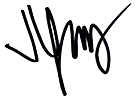I think you'll agree,there's one thing sports movies often have trouble getting right, particularly those that aspire to verisimilitude: the voice of the broadcaster. I'm talking about the announcers, the color commentators, the play-by-play men. The guys who describe, in the most melodramatic, bombastic manner possible, exactly what is happening right in front of your eyes.
The drama of sports can be measured in two equal parts: the sudden occurrence of something unexpected, and how that unexpected moment is called. Watch the 1980 Olympic hockey semi-finals or George Foreman's surprise knockdown of Joe Frazier with the audio turned off; it's certainly a different experience. Perhaps no less significant, athletically, but palpably less thrilling. Al Michaels made a career out of his incredulous rhetorical question, and Howard Cosell's breathless bellowing has probably been recorded on a wax disc sent into deep space as a message of our cultural complexity to alien civilizations.
What I'm saying is: play-by-play is important. It has much the same role in sports broadcasting as a musical score does in film: to amplify, emotionally, the action taking place on screen. And so, in a way, the play-by-play in a film is doubly important: it scores a scene, but mustn't obscure the emotion; it describes the action, but mustn't subvert it.
And that, Bryan, is where you come in.
I'm curious to know what you thought of the script when you saw it. Because Warrior is an interesting specimen. At times it follows by rote the classic framework of an underdog sports story (the training montages, the fighting-through-the-tournament montages, the supporting characters gathered around televisions montages), and, at others, casts them aside completely (the opening ten minutes is a restrained, intense conversation that seems like something lifted from one of Mike Leigh's darker efforts). In telling the tale of two pugilistic brothers and their reformed-alcoholic father, the movie takes unabashed pride in its grittiness and realism - how else to explain the way the camera, in jittery close-up, lingers adoringly over every crag and fissure of Nolte's face - yet moves, in its third act, to Atlantic City, where our down-to-earth trio, until now seen only jogging the concrete-gray streets of Philadelphia or teaching physics in beige suburban classrooms, are drawn into a neon-bright international gladiator tournament that seems a contrivance worthy of a Bruce Lee movie.
It's here, as the action builds to the implausible, inevitable, ineffable confrontation, that Warrior feels in danger of slipping into absurdity. At any moment, a false note threatens to collapse the carefully crafted mood. This is where you showed up, Bryan, and I think you deserve a little credit for keeping the things on the up-and-up.
I totally recognized you right away. You had some pretty memorable cameos in Old School and The Hangover, and I'll admit, under duress, to being an aficionado of MadTV when it first arrived on the scene as the profane, frat-boy younger sibling of Saturday Night Live and alt-nerdy Kids in the Hall. In the credits, you're listed as playing yourself, but you're playing yourself as a fight broadcaster, and I wonder if that made the performance more difficult for you, particularly since you don't seem to have any experience in sports broadcasting. But, like the best play-by-play men, you (alongside author Sam Sheridan) call the fights with just the right mix of sympathy and self-consciousness, which captures perfectly the bravado and boyish enthusiasm inherent in MMA culture.
I've read other reviewers complain about your hyperactive, hyperbolic commentary--but I think that's precisely what makes it work. As a sport still in its infancy, MMA broadcasts are in their infancy, too, and despite the massive numbers UFC events pull in on pay-per-view, they lack the polish that most networks bring to big sporting events. Think about it: there are no legacy broadcasters. No Costas' or Bermans' or Ron MacLeans'. Who are you supposed to emulate? Joe Rogan?
Nonetheless, you're able to capture that intangible quality of cockiness that is so often used as mortar to fill in the seams of not quite knowing everything. Hyperbole is the whole point. Editorializing is the whole point. You don't know what these two brothers have been through, but we (the audience) do, and this secret-sharing amplifies our affection for them.
Warrior isn't necessarily a film that seeks to immerse the viewer in the experience of being a fighter inside the ring - the camera often hovers at a remove on the far side of the chain-link cage - but it does strive to keep things real.
Real brothers with real problems. And you, my friend, kept it realer than most.
Sincerely,

Jared







